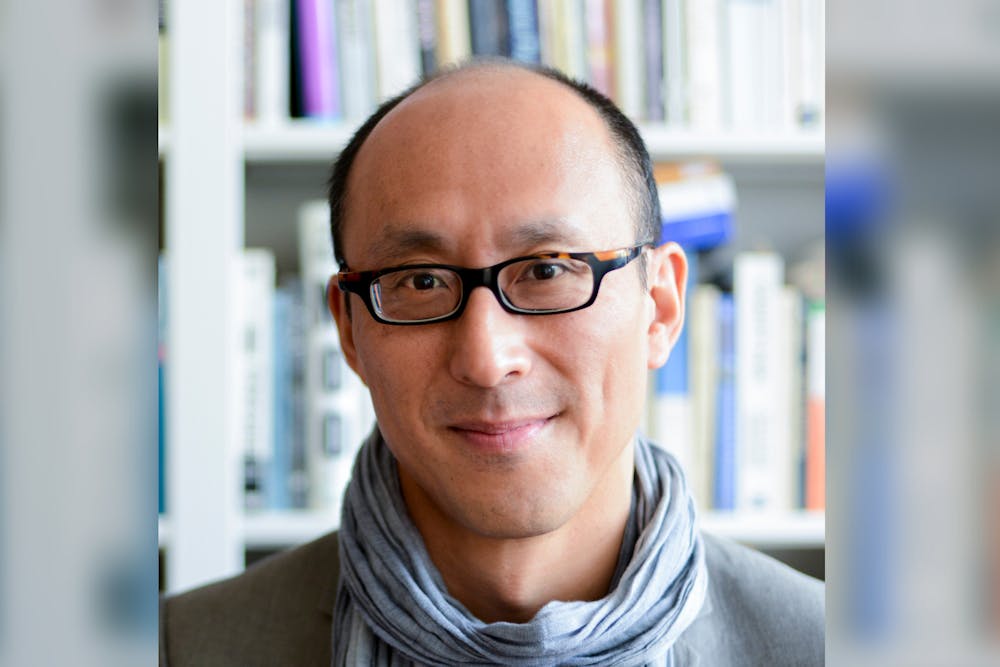David Eng, a professor of the Asian American Studies Program, is slated to leave the University in the coming weeks as a result of a longstanding issue of declining support for the program — leaving community members with a sinking feeling about the entire future of Asian American Studies at Penn.
Eng — Richard L. Fisher professor of English who is also a professor in the Gender, Sexuality, and Women’s Studies Program and the Comparative Literature and Literary Theory Program — said he is one of three remaining tenured faculty members in the Asian American Studies Program.
The fight to preserve Asian American Studies at Penn began when former Sociology professor and longtime director of the Asian American Studies Program Grace Kao departed for Yale University in January 2017. Since her departure, the program, which was founded in 1996, has lobbied for funding, support, and more teaching space for courses.
In February 2017, students rallied on College Green to demand that Penn hire a standing senior Asian American Sociology professor to replace Kao. Students also called on the University to provide a physical space to house the Asian American Studies Program and increase funding for tenured Asian American Studies professors.
At the time of her departure, Kao was one of four tenured faculty members in the Asian American Studies Program.
"The [Asian American Studies] Program thrived and continued to thrive, but the School of Arts and Sciences, and perhaps the rest of the administration, did not seem to want to support it, despite the high interest level of the students," Kao said. "I felt like I had worked on something for 20 years and had not seen a lot of evidence of any support from the University, and it was just tiring honestly. Twenty years is a lot to give to something."
Like Kao, Eng cited offers of professorship he received from other universities — such as Harvard University, Rutgers University, and the University of Hong Kong — as one of the reasons he is choosing to leave Penn after this academic year. Eng added that Harvard's offer of professorship is a result of a larger effort at Harvard to recruit more faculty members in ethnic studies over the next several years.
Penn and Cornell University are the only two Ivy League Universities that offer minors in Asian American Studies. Princeton University added a certificate — the equivalent of a minor — in Asian American Studies in fall 2018. Harvard offers courses in Asian American Studies but has not indicated any plans of adding a major or minor, and Dartmouth College is developing an Asian American Studies minor under its Asian Studies program.
RELATED:
‘A violent tragedy’: Students express anger, sadness after Atlanta shootings
Justice Department drops Yale admissions lawsuit alleging discrimination
“The fact that Grace Kao left for Yale four years ago and has still not been replaced — and that I am about to go — suggests a troubling pattern,” Eng said.
Some of Eng's former students believe his departure will further limit their access to resources in the field of Asian American studies.
Howie Tam, a former advisee of Eng’s who received a Ph.D in English from Penn in 2019, cited the overburdening of professors as one of the reasons ethnic studies professors continue departing from the University.
“When you have only two or three [professors] and several students who are interested in working with them, you overburden them,” Tam said. “The University hasn’t created an environment where someone like [Eng] can feel supported as a faculty member.”
College senior Erin O’Malley, a former student of Eng's who is minoring in Asian American Studies, said they transferred to Penn because the University of Rochester — the University they previously attended — did not have an Asian American Studies Program. O’Malley added that they are concerned about the availability of Asian American Studies classes after Eng’s departure because many of the classes are not offered regularly, noting that they were not able to take ASAM 002: "Asian American Literature" until their junior year because the class is only offered in fall semesters and was canceled in fall 2018.
O’Malley added that Undergraduate Chair of the English Department and Director of the Asian American Studies Program Josephine Park, one of the remaining tenured professors in the program, is not teaching any Asian American Studies courses this semester. Park has not taught an Asian American Studies course since fall 2019.
Park did not respond to request to comment.
O’Malley also noted that the lack of tenured professors in Asian American Studies poses a challenge for students applying to graduate programs, as many graduate programs across the country require three letters of recommendation from tenured faculty in the field of study.
“It feels almost like Asian American Studies and other ethnic studies are sort of being tokenized,” O’Malley said, referring to the fact that the program will soon only have two tenured professors, while other fields of study at Penn have adequate financial support and more tenured faculty members.
Because Asian American Studies is a program and not a stand-alone department, Eng said that it is difficult to hire new faculty. He explained that the program has to appoint professors who have research expertise in Asian American studies, and who are already tenured in other departments at Penn. This requirement makes it difficult for the University to appoint new faculty to the Asian American Studies Program because Penn cannot require that departments hire people with research interests in specific fields, Eng said.
Regarding his decision to leave Penn, Eng noted that he has been in a "commuting relationship" with his partner, a law professor at Emory University, for the past 20 years and that the two now wish to find positions at the same university.
"Just in the English department itself we have eight couples, so Penn has been very accommodating for couples, but these are all straight couples," Eng said. "The English Department has been advocating fiercely to retain me and recruit my partner to Penn, but this is something that ultimately only the upper administration can make happen."
Eng said one way the University can continue supporting Asian American students is by providing better psychological services, citing his book published in 2019 that discusses Asian Americans’ mental health.
On a scale of one to 10 of psychological distress, Eng said that white students will visit psychological clinics when they are at six on average, indicating that they have exhausted their friends and families as resources and are seeking a neutral perspective. Asian American students on average tend to visit clinics when they are at 10 or 11 — indicating that they are already experiencing a psychological crisis — and Black and Latinx students often do not visit clinics at all because they do not "feel entitled to the space," Eng said.
“When I talk with my students about Counseling and Psychological Services, I don’t hear the most positive stories,” Eng said, in light of the recent departure of an Asian American CAPS staff member. “You need to have people in [CAPS] that reflect the student body and who are culturally sensitive and aware.”
Tam said the need for robust ethnic studies programs at Penn is heightened due to the rise in anti-Asian racism and violence during the COVID-19 pandemic. The University administration sent an email to the Penn community on March 17 denouncing anti-Asian violence, following a shooting in Atlanta that killed eight people, six of whom were women of Asian descent.
“The question for the University is how are [they] going to help address anti-Asian racism?” Tam said. “The answer is simple: [They] educate. That’s what a university is supposed to do, and you do that by hiring people to do the educating.”









